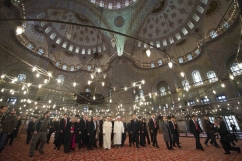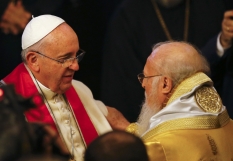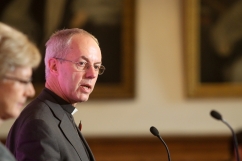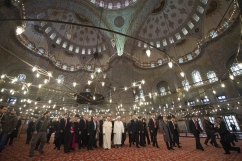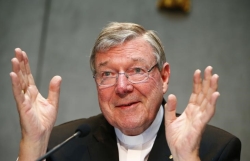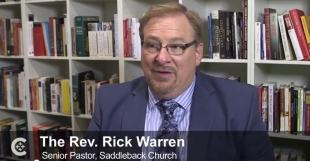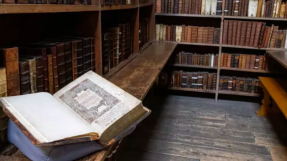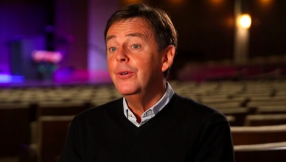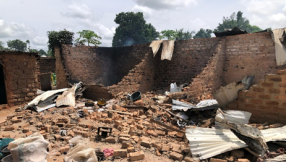Pressure is mounting on the Vatican to delay a planned visit by Pope Francis to Sri Lanka in January.
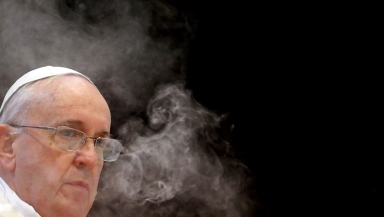
The visit is scheduled for January 13, only five days after the Sri Lanka goes to the polls in an election which sees President Mahinda Rajapaksa seeking an unprecedented third term. It will see the canonisation of Sri Lanka's first saint, the Blessed Joseph Vaz.
However, the Pope has been unwittingly co-opted into electioneering for him thanks to the digital manipulation of campaign posters. One had superimposed photos of the president and the Pope to depict them smiling at one other with the caption: "Blessings of the Holy Father; You are our president, victory for you."
Now a Sri Lankan human rights group has urged the Pope to postpone his visit. According to Asia News, the Christian Solidarity Movement has written to the Vatican saying the visit is likely to be "spoiled" by its proximity to presidential elections.
CSM fears that "election organisers will exploit the pope's visit as a political tool" and says: "We do not want see the pictures of the Pope used by any politician." The letter reaffirms "the singularity of Pope Francis, especially his love for the poor and marginalised" and says "We appreciate his efforts to bring about changes in the Church."
Another voice raised in opposition to the visit is that of the priest-director of Sri Lanka's lay apostolate, who wrote to the country's bishops before their December conference saying that the visit should be postponed.
He said: "Perhaps the understanding that His Holiness does not visit a country too close to an important national election can be cited as a valid reason for the postponement. This also is justified as the President has gone back on his assurances that the two events would not be too close to each other."
He warned of the danger of violence, saying: "Although His Holiness may not be concerned for his personal safety, his presence in a situation of turmoil and political strife will invariably sully the image of the Papacy. If violence does occur, it can also lead to extremists terming Catholics as being anti-national if our concerns are diverted to the Papal visit."
A retired senior Catholic journalist, Hector Welgampola, wrote on his blog that the rescheduling of the election, which was not due for two years, had "deeply hurt the country's Catholics". "Catholics invited the pope to canonize Blessed Joseph Vaz, the country's first saint, not for a State visit," he said. "Catholics wished it to be a religious event, with minimal state involvement just for routine protocol. With deep frustration, they now watch the political Trojan horse invade the sanctuary."
He continued: " The spiritual upbuild for the canonization by groups such as the Joseph Vaz National Secretariat was first distracted with Church-State-planned pageantry for the papal visit. Thereafter political posters made it a tool for election propaganda. Election-related discord and violence may soon overshadow the event. Church leaders little realize the faith erosion caused by letting politics ruin the holiest event Catholics eagerly awaited for 303 years."
Rajapaksa's regime oversaw the defeat of the brutal Tamil Tiger separatist rebels in 2009, but his government has been widely criticised for human rights abuses and for failing to take action on reconciliation with the sizeable Tamil civilian population. Attacks on churches and mosques by extremist Buddhist groups have made him unpopular with minorities.










